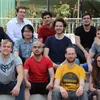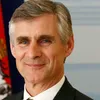Startup Guide Vienna: how this Central Europe hub combines quality of life with entrepreneurial drive
This guidebook covers emerging startups, accelerators, co-working spaces, and support institutes in Central Europe’s vibrant business and cultural hub.
Launched in 2012, YourStory's Book Review section features over 250 titles on creativity, innovation, entrepreneurship, and digital transformation. See also our related columns The Turning Point, Techie Tuesdays, and Storybites.

The Startup Guide series of books, launched in 2014 by Copenhagen-based publisher Sissel Hansen, covers over 25 cities such as London, Barcelona, Lisbon, Oslo, and Miami. See our reviews of the guidebooks for New York, Berlin, Munich, Zurich, Paris, Stockholm, Johannesburg, Cairo, Tokyo, Bangkok, and Singapore.
Startup Guide Vienna is spread across 225 pages and makes for an informative and entertaining read, with profiles of founders, co-working spaces, incubators, and other ecosystem players.
The 2017 edition of the book reveals Vienna has often ranked towards the top of the Global Livability Ranking, Innovation Cities Index, and Smart Cities in Europe. With a population of around two million, it is home to 125,000 companies and several technical and business education institutions.
The government is supportive of startups and entrepreneurship as well. Notable startups from Vienna include Wikifolio, Kompany, Codeship, and Runtastic. More established technology firms include TTTech and Arsanis.
“The connection between the old economy and new business has become increasingly important,” according to the publication’s business partners Thomas Maidorfer and Rudolf Dömötör.
Vienna has a vibrant ecosystem for startups, thanks to its interdisciplinary talent and hub position in Central Europe. Other advantages of Vienna are its rich culture with museums, coffeehouses, music venues, art festivals, and a lively “underground” scene.

Overview
One section provides an overview of the city’s environment such as socialisation (lots of time in restaurants and cafés), public transport (cheap, safe), childcare (highly subsidised by the government), business culture (punctual), taxation (high; consultants are necessary), language (Austrian German; English is widely spoken also), and people (welcoming, once the ice is broken).
Austria offers one of the best healthcare systems in the world. Real estate in Vienna is more affordable than other European capitals like London or Paris. The city has large green cover and is friendly to bicyclists. Quirks include the fact that Sunday shopping is banned for a day of rest.
Strong sectors include life sciences, ICTs, manufacturing, creative industries, and environmental tech. The city is becoming more “founder friendly” as well.
For example, the Vienna Business Agency helps startups and international firms with local setup and global expansion via grants, funding and consulting. The Vienna Chamber of Commerce and Industry helps startups in early stages, via a startup academy (‘Rocket Science’) and startup challenge (‘Innovation to Company’).
I. Startup profiles
One section of the book profiles 12 startups based in Vienna, with inspiring origin stories and business descriptions. They include bgood (loyalty programme to reward people for sustainable consumption, and behaviour), bluesource (mobile couponing for brands), and crystalsol (solar cell technology).
CONDA is a crowd-investing platform to help startups raise funds and navigate “onerous tax laws.” byrd is a first-mile shipping service with logistic solutions for ecommerce sellers.
Lithoz develops 3D printers and ceramic materials. Robo Wunderkind is a robotic kit to teach children about coding and electronics.
Marinomed has developed a technology platform for the development of respiratory therapies. mySugr has an app and services for people with diabetes.
Waytation offers analytics to track customer journeys at exhibitions. Vienna is a major centre for conferences and events in Europe.
Vollpension offers seniors an opportunity to be engaged in culinary activities. WUGGL enables farmers to weigh their pigs quickly and without contact, thereby saving valuable time and eliminating stress on the animals.
Many of these founders benefited from the local ecosystem via Social Impact Awards, Vienna Startup Awards, Design Week, Climate KIC Stage, Innovation Incubation Center (i²c), and INiTS Accelerator. Some also participated in startup programmes in France and Silicon Valley.

II. Startup ecosystem
One section of the book profiles the support system for startups, ranging from incubators to accelerators. For example, Agro Innovation Lab, a subsidiary of RWA Group, offers a three-month accelerator programme for agri-tech startups.
Innovation Incubation Center (i²c) of TU Wien was launched in 2012. “The challenge is to transform a 200-year-old university into a modern Entrepreneurial University,” explains founder Birgit Hofreiter. It offers entrepreneurial and intrapreneurial education via the Start Academy and pitch challenge at Networking Friday.
Academic incubator INiTS helps early stage startups with business validation. “Customer money is always the best money for a startup,” explains CEO Irene Fialka. The incubator conducts a 100-day Startup Camp.
Social Impact Award is a community of social innovators, with a year-round educational programme and four-month incubation period at Impact Hub Vienna. Past winners include whatchado and Refugees Welcome. Admission criteria include impact, innovation, and feasibility.
“Running a startup is like running in high heels. Running a social startup is like running in high heels backwards,” jokes Jakob Detering, Director of Social Impact Award Europe.
Pioneers is an international relationship builder in the tech and startup scene. Its offerings include the Pioneers Festival, Pioneers Events, Pioneers Discover, and Pioneers Ventures. Some focus areas include mobility and fintech.
The non-profit platform AustrianStartups organises regular get-togethers at a pub or restaurant via the tradition of Stammtisch. It also publishes videos for Startup Role Models.
Entrepreneurship Avenue is Austria’s largest inter-university startup event series organised by the Entrepreneurship Center Network (ECN) and SIMConnect. It also hosts an annual job fair for startups.
Startup Live offers startups profiling, pitching, networking, and mentoring events across 40 cities. The aim is “to get entrepreneurs on stage”.
Founded in 2012, the Austrian Angel Investors Association provides funding for startups and organises monthly meetups throughout the country.
Managers of these support institutes advice aspiring entrepreneurs to develop inter-disciplinary approaches to problem-solving, and reflect on their own strengths and weaknesses. Hiring the best people can ensure performance and impact.
Flexibility and persistence are important in equal measure. Founders should have an ability to listen, and know when to pivot, change plans, and give up earlier ideas. Vision, stamina, efficiency, and determination are key for the long run. They should be in it for the joy and for something personal beyond just the money.
Externally, founders should get close to customers to really understand their problems, and become passionate about solving these problems. They should cultivate industry networks, conduct extensive research, and learn about the business of fundraising.

III. Co-working spaces
Vienna has a number of co-working spaces, some of which specialise in certain sectors like social innovation or design.
Yves Shulz founded sektor5, one of Vienna’s first co-working spaces in the city. It is a winner of the European Startup Award (CESA) for Best Co-working Space. It also launched an in-house incubator for early-stage startups (5starts).
Impact Hub Vienna is Austria’s largest innovation lab, and also offers co-working options. Vienna is Impact Hub’s global headquarters, and runs several incubation and acceleration programmes, including Social Impact Award and the Investment Ready Program.
Arno Aumayr was inspired by his visits to makerspaces FabLabs in Northern Europe and Scandinavia, and built Maker Austria in Vienna. Rochuspark, founded by Michael Pöll, has a large concentration of fashion designers, architects, photographers, and entertainers.
Alexander Salzmann founded Stockwerk in 2013, after a visit to Berlin inspired him about the importance of community in co-working spaces. ViENNABOLD was launched in 2016 by Hannah Neunteufel’s event planning company, Hannah’s Idea. A co-working space with a futuristic arcade is vrei, the ‘virtual reality lounge.’
WU Gründungszentrum is a co-working space at WU (Wirtschaftsuniversität Wien). It also organises monthly Startup Days for early-stage entrepreneurs.
This section of the book profiles key organisers of these spaces, called ‘Face of the Space.’ Some of them are serial entrepreneurs, historians and designers.
“The most important thing is to get out of the building and talk to people about your idea,” advises Kai Wichmann of Impact Hub Vienna. Hannah Neunteufel wants to position ViENNABOLD as an “HQ HQ: High Quality Headquarters.”

IV. Expert insights
One section of the book provides tips from 11 experts representing large firms, banks, and startup support initiatives in the city. The advice covers market expansion, industry connects, and legal issues.
Transforming ideas into commercial success is like playing music together, explains Stefan Kreppel, startup representative at FFG (Austrian Research Promotion Agency), drawing on the inspiration of Austria’s music genius Mozart. FFG was founded in 2004, and has helped startups like Helioz (solar energy).
GIN, Austria’s global incubator network, aims to be a “tonic to startups”. It is a collaboration between the public bodies aws (not to be confused with Amazon Web Services), the Austrian Federal Promotional Bank, and FFG.
It has business bridges with counterparts in countries like Japan, South Korea, Singapore, and Hong Kong. For example, it helped Indonesian startup Mycotech, which builds bricks bound with mushrooms.
Bernd Litzka is programme manager at aws i2 Business Angels Austria, hosted by aws (Federal Austrian Development Agency). “Over 90 percent of all Austrian startups are customers of aws,” she says. It has helped startups like Rieder (enhanced concrete), Fabasoft (cloud services), and EMCOOLS (medical cooling patches).
Headed by Emanuel Bröderbauer, the i2b (‘idea to business’) program engages startups with Erste Bank. It collaborates with Austria’s Federal Economic Chamber to connect startups less than three years old. It has helped startups like Firstbird (employee referral platform) and coffee company Maier-Kaffee.
The A1 Startup Campus at Telekom Austria helps tech startups as well as boosts the telco’s own innovation capacity. “Supporting startups is a good way for us to get some external innovation that’s related to our core products and services,” explains campus head Mario Mayerthaler.
It helps speed up development at startups in IoT, big data, and smart data. Successful startups include Parkbob (real-time parking service) and Ready2order (mobile PoS systems).
The incubator Der Brutkasten has helped more than 200 startups, including Timeular (smart time-tracking device), Techbold (VR service center) and byrd (door-to-door packaging and postal service).
Erich Schuster, CIO of Austrian Lotteries and Casinos Austria, engages with startups to mutually promote design thinking, lean startup and innovation techniques. It organises the ‘Awesome!ness Challenge’, an intrapreneurship competition for its own employees.
It has hosted startup events at the space Studio 44, and sponsored the ChatbotConf summit. It supports startups in conversational commerce, AI, and indoor navigation and positioning (eg. with the startup ‘indoors’).
Daniel Zech heads SevenVentures Austria, the investment arm of the private TV station of ProSiebenSat. It hosts the programme ‘2 Minuten, 2 Millionen,’ where startups pitch for investments. Featured startups include Zalando (online retailer) and Marktguru (location-based mobile platform for offers from stores).
“TV makes the magic happen. All of the big internet companies spend 75 percent of their marketing spending for TV advertising,” Daniel explains.
Nicolas Sorger directs the developer and evangelism group at Microsoft, with spaces and activities for startups. “More work will be done in this kind of environment than in the corporate companies we have today,” he explains.
Microsoft in Vienna assists startups with robotisation and digitalisation. It has worked with Runtastic (sports gamification), regarded as one of Austria’s most-recognised success stories (bought by Adidas). Another startup is Time Cockpit (time tracking application).
Founders need to pay attention at early stages to issues of local and international taxation, equity programmes, and government grants, according to Verena Winter, tax advisor at BDO Austria.
IP and legal issues in sectors like gaming are important, according to Roman Rericha, partner at law firm Brandl & Talos. Founders should also guard against the risk of employees leaving to launch competing companies.
Other tips for founders offered by these business leaders are the importance of seeing the bigger picture, building efficiency for future scaling, and being open to critical feedback (beyond friends and family).
Agility is a competitive edge startups have over large incumbents. Keeping up with the latest technologies is key in this regard.

V. Founder advice
The book features interviews with founders of five startups. The profiled founders trace their entrepreneurial journeys, lessons learnt, and tips for the next wave of aspiring entrepreneurs.
Ali Mahlodji is the co-founder and chief storyteller at whatchado, a storytelling platform about the careers of employees at companies. It includes short videos, with a key focus on authenticity. This helps companies with recruitment drives; they pay to get their employee videos listed.
Ali, an Iranian refugee in Austria, credits his optimism, curiosity and work ethic for his success, as well as ecosystem support. He worked his way up from McDonald’s to Siemens and Sun Microsystems, and became a high school teacher as well.
Ali began by launching his company as a “handbook of life stories” to help youth understand what to do in life. A chance conversation with a TV station intern at a party led to his story being profiled on air.
Christoph Richter is the founding partner at Intellyo and zoomsquare (real estate search engine). He began by working at derStandard.at (first German-speaking newspaper online) and bwin (online betting company).
He also co-founded iJoule (promoting of health behaviours). He says he was inspired by his father’s gutsy attitude of not regarding any project as too complex, if you learn as you go and figure out things along the way.
“If you have a bad product, but a good team, they will change it until it works,” Christoph explains. “There are always times when you’ll fall down, but the important thing is to get back up,” he adds.
Katharina Klausberger is cofounder and CEO of Shpock (the ‘SHop in your POCKet’), a flea-market app that connects buyers with second-hand products in their own neighborhoods. She earlier founded Finderly (online recommendation platform for electronics), and has a PhD in crowdsourcing.
“Over time you get more experience and can come up with an answer for anything, but in the beginning, the unexpected things you have to tackle are the hardest,” Katharina recalls. She advises founders to test features before building too many of them.
“Finding the right co-founder and the right team is the most important thing. It’s not easy to start up and run a company, so you need to move forward as a team. Team is first and last,” she emphasises.

Verena Mai is the Co-founder and CEO of UNIspotter, an app that guides students through the complex process of finding the right university study programmes. She faced this problem herself.
“It’s important to get practical insights early. With startups, so much is about role models,” she explains. She also won a scholarship for the European Innovation Academy for her work.
“With a startup, there is no path yet. You’re always trying something new, so you get used to that feeling. Validated learning always requires failure,” Verena adds.
Stephanie Cox first launched a consulting business ([re]wired) to help startups around Europe navigate important team choices. She then co-founded chancen:reich, the first career fair for refugees in Austria, which provides them with employment options and integration opportunities.
The early startup scene was like Woodstock, she observes. “A lot of love, no money, but we thought we were awesome,” she jokes.
“A lot of startups in the rapid growth phase lose themselves. They don’t know how to cope with money,” Stephanie cautions. With investor pressure, they may lose their original vision. “It’s so hard to keep your team on track in this stormy phase,” she adds.
The book ends with a directory of useful resources for startups, such as investors, meetup groups, and events. Investors in Vienna include 3TS Capital Partners, AC & Friends, Cudos Capital, FSP Ventures, Hansmen Group, i4g Investment, i5invest, Lilo Ventures, next march, primeCROWD, Speedinvest, and Venionaire Capital.
There are a number of networking and pitch events for startups, such as Idea Meets Money, Startup Marketing Hub Vienna, StartupLive Vienna, TEDx Vienna, Creative Mornings, and Vienna Fintech Meetups.
In sum, the book provides informative and entertaining insights into Vienna’s startup ecosystem, as well as a useful framework for other cities to reflect on and improve their own startup ecosystems.
Edited by Megha Reddy






![[Funding alert] Satin Creditcare gets $15M ECB funding from Development Bank of Austria](https://images.yourstory.com/cs/2/b87effd06a6611e9ad333f8a4777438f/Imageq5591576144111792jpg?fm=png&auto=format&h=100&w=100&crop=entropy&fit=crop)




